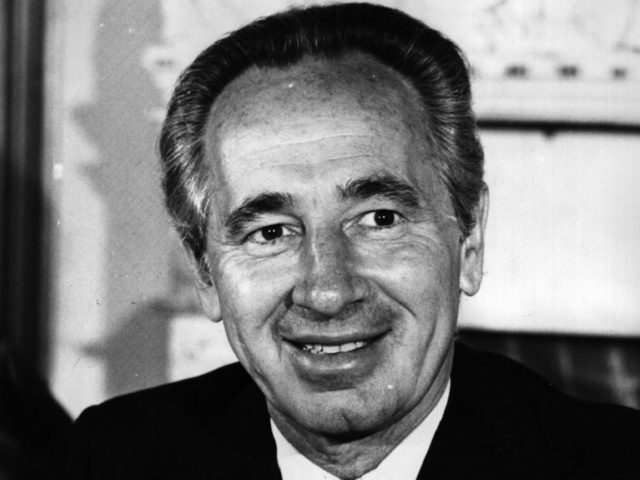Israel awakens Wednesday to the sad news that Shimon Peres, a pioneer and president, passed away at the age of 93 after a recent stroke.
Peres led a political career that was as striking for its longevity as its audacity. He fought in Israel’s war for independence in 1947-8, then was elected to the Israeli Knesset in 1959, and went on to hold nearly every position in the government, including prime minister and, finally, president. He was a warrior-turned-peacemaker — and a canny politician.
But were he to have retired, say, eighteen years ago, at the ripe old age of 75 — more than enough time in the spotlight for any public figure — he would have been remembered differently than he is remembered today.
Peres initiated the clandestine Oslo peace process, which was celebrated by the Israeli left, welcomed by the West, and exploited shamelessly by the Palestinians. He dreamed of a “Third Way” in politics, and a new Middle East. Instead, he saw his vision collapse in terror and hatred.
There was fault on the Israeli side, too — principally, the assassination of Prime Minister Yitzchak Rabin — but when Peres succeeded Rabin, he found no serious partner on the other side. Amidst Palestinian terror and costly mistakes in southern Lebanon against Hezbollah, Peres lost the confidence of the Israeli public.
The Clinton administration tried to shore him up, and when Peres went to bed on the night of the 1996 elections, he thought he had won. He woke up to learn he had been narrowly ousted by Benjamin Netanyahu, who had led the opposition to the Oslo process. Peres faded from the forefront of Israeli politics, blamed by much of the Israeli public for a hopelessly utopian dream of peace that now endangered the state.
That is how Peres would have been memorialized, had he retired, especially after the Oslo process collapsed entirely in 2000 into the second Palestinian intifada, with its ruthless Palestinian suicide bombings and efforts to isolate Israel internationally.
But Peres found his way back into Israeli politics, taking office as foreign minister in the Likud government of Ariel Sharon. The world hated Sharon, a military man associated — somewhat unfairly — with massacres in Palestinian refugee camps in Lebanon by Christian militias in 1982. But to Israelis, including those on the left, Sharon was the answer to Yasser Arafat’s terrorism. And Peres played a critical role as the international face of the new Israeli government, bolstering its legitimacy.
It is impossible to overstate the importance of Peres’s global diplomacy. Precisely because he believed so strongly in peace, and had sacrificed so much in its pursuit, only he could defend Israel’s military responses to Palestinian terror with credibility. On a visit to South Africa — a hotbed of anti-Israel hatred — in 2002, he braved a violent mob of radical Muslims and radical leftists to deliver a speech, then charmed the country’s hostile press corps with his statesman’s tone and grandfatherly mien.
Throughout his career, Peres had been rejected by Israelis when he sought election to high office. He had been seen as too much of a dreamer. But his service during the second intifada brought him new respect, and he was elected president in 2007.
One of his first acts was to visit the grave of Ze’ev (Vladimir) Jabotinsky, the founder of Israel’s right-wing Revisionist movement, who correctly anticipated that Israeli security would require guns, not agreements. For Peres, the visit was less an ideological shift, and more a gesture of reconciliation.
And that is how he is being remembered now — as a unifying figure.
Listening to Israeli radio Tuesday evening, what is striking — even for a small country — is how many people knew Peres personally, and feel touched by his passing. They are not just mourning one of the country’s founders, but rekindling their hopes for peace.
Peres saved that dream by defending, not abandoning, his people. He had their respect; he earned their love.
Joel B. Pollak is Senior Editor-at-Large at Breitbart News. His new book, See No Evil: 19 Hard Truths the Left Can’t Handle, is available from Regnery through Amazon. Follow him on Twitter at @joelpollak.

COMMENTS
Please let us know if you're having issues with commenting.